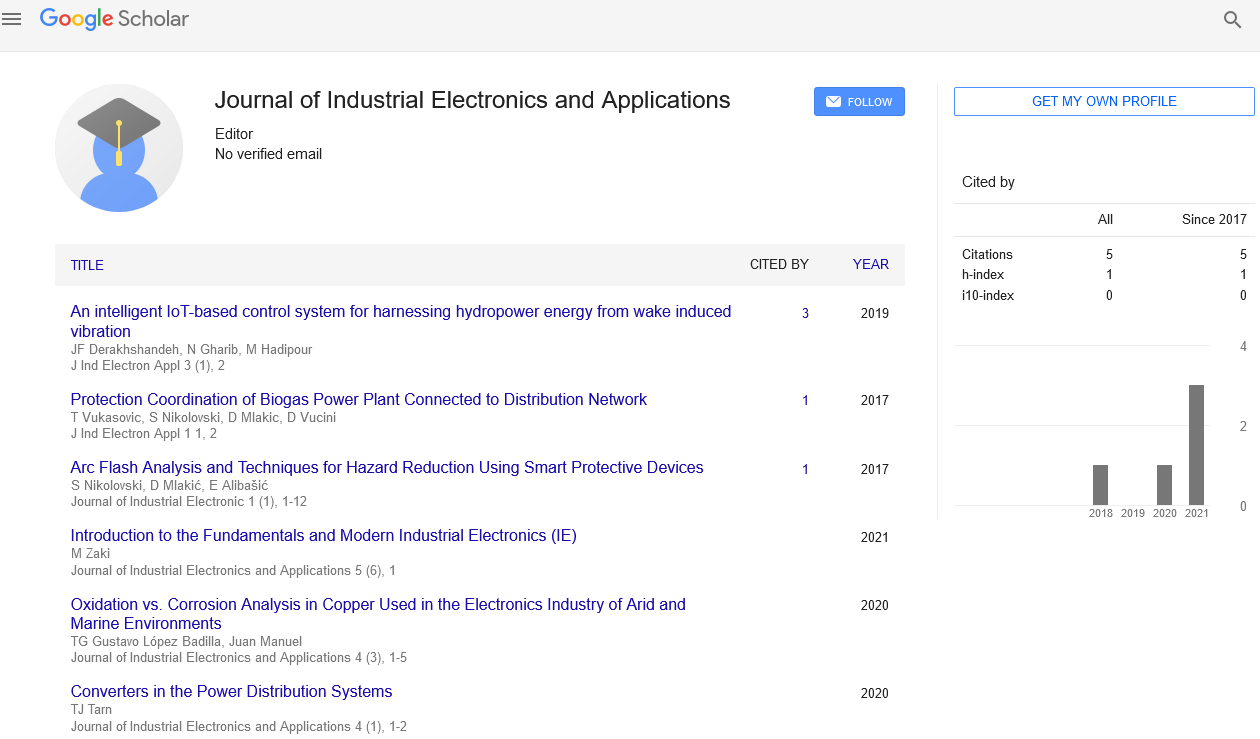Perspective, J Ind Electron Appl Vol: 7 Issue: 4
The Innovative Impact of Integrated Automation on the Evolution of Automobile Industry
Choi Kim Lee*
1Department of Mechanical Engineering, Sun Moon University, Asan-si, South Korea
*Corresponding Author: Choi Kim Lee,
Department of Mechanical Engineering,
Sun Moon University, Asan-si, South Korea
E-mail: choilee1982@sunmoon.ac.kr
Received date: 01 November, 2023, Manuscript No. JIEA-23-124012;
Editor assigned date: 03 November, 2023, PreQC No. JIEA-23-124012 (PQ);
Reviewed date: 20 November, 2023, QC No. JIEA-23-124012;
Revised date: 27 November, 2023, Manuscript No. JIEA-23-124012 (R);
Published date: 04 December, 2023, DOI: 10.36648/JIEA.1000051
Citation: Lee KC (2023) The Innovative Impact of Integrated Automation on the Evolution of Automobile Industry. J Ind Electron Appl 7:4.
Abstract
The automobile industry is undergoing a revolutionary transformation, marked by the integration of automation technologies that promise to redefine the way vehicles are designed, manufactured, and operated. Integrated automation, a combination of robotics, artificial intelligence, and advanced manufacturing processes, is driving unprecedented efficiency and innovation in the automotive sector.
Description
The automobile industry is undergoing a revolutionary transformation, marked by the integration of automation technologies that promise to redefine the way vehicles are designed, manufactured, and operated. Integrated automation, a combination of robotics, artificial intelligence, and advanced manufacturing processes, is driving unprecedented efficiency and innovation in the automotive sector. This article explores the multifaceted impact of integrated automation on the automobile industry, from design and production to the advent of autonomous vehicles.
Streamlining production processes
Integrated automation has revolutionized the traditional assembly line, introducing robotic systems that perform intricate tasks with speed and precision. Robots equipped with sensors and vision systems collaborate seamlessly with human workers, enhancing efficiency in tasks such as welding, painting, and component assembly. The integration of 3D printing and additive manufacturing technologies has transformed the prototyping and production processes in the automotive industry. This enables the creation of complex, lightweight components with reduced material waste, leading to cost savings and faster product development cycles.
Enhancing design and engineering
Generative design, a subset of artificial intelligence, is influencing the design phase by exploring numerous design possibilities based on specified parameters. This iterative and data-driven approach allows for the creation of optimized components and structures that are both functional and resource-efficient. Integrated automation introduces the concept of digital twins, virtual replicas of physical objects or systems. In the automotive industry, digital twins enable real-time monitoring and analysis of vehicle performance, allowing manufacturers to identify potential issues and optimize design parameters before physical prototypes are produced.
Enabling smart manufacturing
The Internet of Things (IoT) plays a pivotal role in integrated automation by connecting devices and machines throughout the manufacturing process. This connectivity facilitates data exchange, remote monitoring, and predictive maintenance, enhancing overall operational efficiency. Integrated automation employs artificial intelligence algorithms for quality control. AI-driven systems can analyze vast amounts of data to identify defects, anomalies, or deviations in real-time, ensuring that only high-quality components make their way into the final product.
Advancing autonomous vehicles
Integrated automation is fundamental to the development of autonomous vehicles. Sensors, such as LiDAR, radar, and cameras, are seamlessly integrated into vehicle designs to enable real-time data collection, environmental perception, and decision-making by autonomous systems. Machine learning algorithms are employed to enhance the capabilities of autonomous vehicles. These algorithms enable vehicles to learn from real-world scenarios, adapt to changing conditions, and improve their decision-making processes over time, contributing to safer and more reliable autonomous driving.
Supply chain optimization
The impact of integrated automation extends beyond the factory floor to optimize supply chain processes. Automated warehousing and logistics systems utilize robotics and AI to streamline inventory management, order fulfilment, and distribution, reducing lead times and enhancing overall supply chain efficiency. In the realm of integrated automation, predictive maintenance is transforming fleet management. Sensors embedded in vehicles gather real-time data on performance metrics, enabling proactive maintenance measures that prevent breakdowns and prolong the lifespan of the fleet.
Conclusion
Integrated automation has ushered in a new era for the automobile industry, fundamentally altering how vehicles are conceived, produced, and operated. From robotics on the assembly line to artificial intelligence in design and engineering, the integration of automation technologies is driving efficiency, innovation, and sustainability across the automotive sector. As the industry continues to embrace integrated automation, it is poised to unlock further possibilities, from the widespread adoption of autonomous vehicles to the evolution of smart manufacturing ecosystems. With a focus on continuous improvement and responsible implementation, integrated automation is steering the automobile industry toward a future marked by unparalleled efficiency and transformative advancements.
 Spanish
Spanish  Chinese
Chinese  Russian
Russian  German
German  French
French  Japanese
Japanese  Portuguese
Portuguese  Hindi
Hindi 